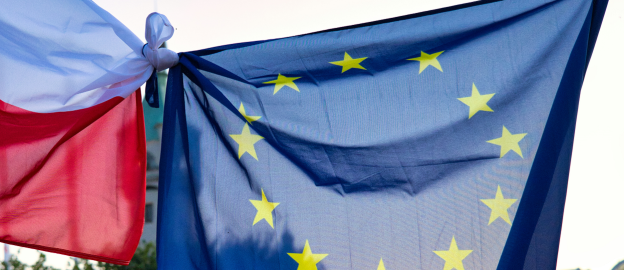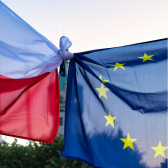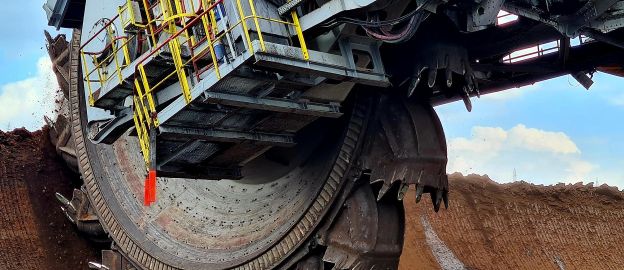Analysis, opinions, dialogue.
Acting for the energy transition.
Report
Understanding EU's and Poland's Renewable Energy Goals.
How to speed up the RES development?
We are a European and interdisciplinary
think tank from Poland.
We created Forum Energii to provide reliable knowledge and support the energy transition.
We initiate dialogue, propose proven solutions based on knowledge and reliable data, and look after our country's and Europe's energy security. We inspire action for a fair, secure and effective energy transition. We carry out our mission through analysis, opinion and dialogue. We propose changes that are socially and economically justified.
Our vision is a climate-neutral world where energy is zero-carbon based and accessible to everyone.

Our Programmes
Power
We identify the most important challenges facing the power sector in Poland and globally. We analyse how to safely and cost-effectively change the generation mix and how to plan the energy transition process to use renewable sources and other zero-carbon technologies. We describe the technical and economic feasibility of the energy transition in an accessible way.
Renewables
We explore opportunities for the development of renewable energy sources. We look for the best solutions to increase the share of clean energy in the economy and improve energy security. We focus on integrating clean technologies into the electricity system with consideration of costs, technical capabilities and the need to electrify other sectors of the economy.
Heating
The heating sector in Poland comprises hundreds of district heating systems and millions of individual heating appliances. Today, these are mostly outdated and inefficient. In the programme, we are looking for optimal solutions- those that will ensure access to heat and at the same time lead to climate neutrality and improved air quality in Poland.
Cities
Cities - is a programme that supports local governments and city dwellers in diagnosing the challenges they face in moving towards climate neutrality. Together, we prepare solutions for clean air, energy security and the prevention of fuel poverty.
Part of the Cities programme is 'LeadAir' - an education and advisory project for local governments.
Energy Transition Financing
The energy transition is a very expensive process. It therefore requires very thoughtful measures and rational investment financing. In this programme, we suggest how to spend available funds wisely and for the right purposes.
International
Programme
The energy transition has an international dimension - on several levels, although the starting point and specifics of each country are different. We operate in a world full of dependencies. In the International Program, we create and propose solutions that enhance energy security, support technology development, digitalization and knowledge sharing.
Publications
European Commission priorities for 2024-2029. The view from Poland on energy and climate

European Commission priorities for 2024-2029. The view from Poland on energy and climate

Understanding EU’s and Poland’s RES Goals

Understanding EU’s and Poland’s RES Goals

Monthly Magazine

Monthly Magazine

Eighth capacity market auction—high time for the flexibility market

Eighth capacity market auction—high time for the flexibility market

Planning Poland’s Climate and Energy strategies in a new political opening

Planning Poland’s Climate and Energy strategies in a new political opening

How to ‘uncoal’ Poland

How to ‘uncoal’ Poland

The upcoming European Parliament elections will mark a new opening in EU climate and energy policy. The new European Commission, which will start its term in the fall, will have to monitor the implementation of the Fit for 55 package, the revision of the electricity market, navigate the Union towards the 2030 and 2040 targets and prepare the Union for possible treaty reform and enlargement. In turn, the Polish Presidency of the EU Council, which falls in the first half of 2025, will be an opportunity to present Poland's priorities and vision for the development of the community for the next few years.
When 5 March 2024
Where Brussels
Ukraine is trying to rebuild after the war, but it is also making plans for transformation. This includes energy, which was one of the main targets of Russian shelling last winter.Ukraine's energy transition will not be unaffected by Poland. Where are the new areas of cooperation? Where do we see the greatest challenges?
When 21 February 2024

